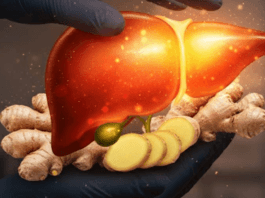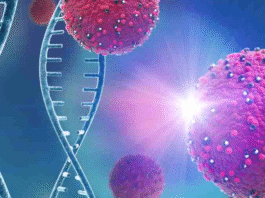Living with cancer is a formidable journey, fraught with challenges and uncertainties. While the term “cancer” is widely recognized, the intricacies of coping with this disease are often overlooked. According to the World Health Organization (WHO), a significant portion of the cancer burden—30-40%—stems from lifestyle-related risk factors. These include smoking tobacco, excessive alcohol consumption, poor dietary habits lacking in fruits and vegetables, obesity, and sedentary lifestyles. As such, health experts emphasize the importance of proactive measures such as health screenings to detect carcinoma early when treatment outcomes are typically more favorable.
In India, the prevalence of cancer is on a concerning upward trajectory. Recent research conducted by Apollo Hospitals highlights a troubling trend, indicating a decline in overall health among Indians. Alarmingly, the number of cancer cases has surged annually, with projections indicating further increases in the coming years. In 2020 alone, a staggering 14 lakh individuals in India were diagnosed with cancer, a figure expected to swell to 15.7 lakh by 2025. These statistics underscore the urgent need for comprehensive strategies to address the growing cancer epidemic gripping the nation.
WHAT ARE THE MOST COMMON TYPES OF CANCER?

Delineating the landscape of cancer incidence, certain types of the disease loom larger in prevalence than others. Carcinoma manifests as uncontrolled growth and spread of abnormal cells, disrupting the body’s natural processes. Among women, breast, cervix, and ovarian cancers reign as the most prevalent forms. Meanwhile, men commonly contend with lung, oral, and prostate carcinoma. Recent estimates from the Global Cancer Observatory shed light on the distribution of new cancer cases in India, with breast, oral, and cervical carcinoma collectively comprising a significant proportion.
Prostate cancer is when cells in the prostate gland start growing abnormally, forming a tumor. Imagine the prostate as a small walnut-shaped gland nestled in a male’s body, doing its job quietly. It’s responsible for producing seminal fluid, which supports and carries sperm during ejaculation. However, sometimes these cells go haywire, leading to prostate cancer. It’s like a glitch in the system of a well-oiled machine. That’s why early detection through regular check-ups is essential. Don’t let this tiny gland overshadow your health—stay informed and proactive!
In 2022, breast cancer emerged as the foremost malignancy afflicting women, with a staggering 1,92,020 new cases reported, constituting 26.6% of all female carcinoma diagnoses. Trailing behind were cervical cancer, accounting for 17.7% of cases, and ovarian cancer, representing 6.6% of diagnoses among women. Conversely, oral carcinoma topped the list for men, with 1,07,812 new cases reported, comprising 15.6% of male cancer diagnoses. Lung cancer and esophageal carcinoma followed suit, with 8.5% and 6.6% of new cases, respectively. Notably, breast cancer claimed the highest number of lives among women, with 98,337 fatalities reported in 2022. Oral and cervical cancers also exacted a heavy toll, underscoring the dire need for intensified efforts in prevention, early detection, and treatment.
WHAT ARE THE REASONS FOR HIGH INCIDENCE?

Addressing the multifaceted challenge of carcinoma necessitates a concerted approach encompassing prevention, screening, diagnosis, treatment, and palliative care. Efforts must be directed towards raising awareness about modifiable risk factors and promoting healthy lifestyle choices. Equally crucial is ensuring equitable access to quality healthcare services, including cancer screenings and treatments, particularly in underserved regions. Additionally, fostering collaboration between healthcare stakeholders, policymakers, and civil society is imperative to formulate and implement effective carcinoma control policies tailored to the unique needs of diverse communities.
In the face of escalating carcinoma incidence, fostering resilience, empathy, and solidarity within affected communities is paramount. Together, we must strive to alleviate the burden of carcinoma through collective action, compassion, and unwavering commitment to safeguarding the health and well-being of all individuals.
The surge in carcinoma incidence across India has prompted experts to scrutinize the underlying reasons driving this alarming trend. Unhealthy lifestyles are identified as the chief culprits behind the rising tide of carcinoma cases in the country, according to medical professionals.
For women, factors such as delayed marriages and childbirth, along with limited breastfeeding practices, contribute to the prevalence of breast cancer. Genetic predisposition, including BRCA gene mutations prevalent in certain Indian populations, further exacerbates the risk, as highlighted by Dr. Vedant Kabra.
Smokeless tobacco products like gutka and paan masala are widely consumed in India, accounting for a staggering 90% of oral cancer cases. Meanwhile, cervical cancer is often linked to persistent HPV infection, early sexual activity, and multiple partners. The absence of vaccination against HPV further compounds the risk of cervical cancer.
In the case of lung cancer, environmental pollutants and indoor air pollution from cooking fuels emerge as significant factors. Shockingly, individuals residing in the National Capital Region (NCR) are exposed to environmental pollution equivalent to smoking 15 to 20 cigarettes daily, underscoring the magnitude of the problem.
Dr. Dinesh Singh, Chairman of Radiation Oncology at Andromeda Cancer Hospital, Sonipat, highlights the shifting dietary patterns influenced by globalization and urbanization. The increased consumption of processed foods, sweetened beverages, and high-fat meals among young Indians has led to a surge in diabetes, cardiovascular disorders, and obesity rates.
Despite reduced incidence rates, cancer remains a formidable threat to young Indians. Many delay seeking medical attention until symptoms escalate, exacerbating the prognosis, as noted by Dr. Singh.
CANCER IN CHILDREN
The impact of the disease is not limited to adults, as highlighted by Apollo Hospitals’ report, which underscores the rising incidence of carcinoma among children. Notably, certain cancers manifest in younger individuals at earlier ages compared to Western counterparts. For instance, the median age for lung carcinoma diagnosis in India is notably lower than in countries like the US, the UK, and China.
Each year, approximately a million new carcinoma cases are diagnosed in India, with around 4% affecting children. However, the landscape of pediatric oncology care in the country faces significant challenges. Ruchira Misra, a pediatric oncologist at Mumbai’s MMR Children’s Hospital, reveals that only 41% of public hospitals boast dedicated departments for pediatric carcinoma patients, underscoring the need for enhanced infrastructure and resources to cater to the unique needs of young carcinoma patients.
In combating the scourge of carcinoma, a multifaceted approach encompassing prevention, early detection, and comprehensive care is imperative. Raising awareness about modifiable risk factors, promoting healthy lifestyle choices, and ensuring equitable access to quality healthcare services are pivotal in curbing the burgeoning carcinoma epidemic gripping the nation. Collaboration between healthcare stakeholders, policymakers, and civil society is paramount to effecting meaningful change and mitigating the profound impact of carcinoma on individuals and communities alike.
How to prevent cancer?
Preventing carcinoma involves a combination of proactive measures aimed at minimizing risk factors and promoting overall health and well-being. While genetic mutations may be beyond our control, adopting certain lifestyle adjustments and environmental modifications can significantly reduce the likelihood of developing carcinoma.
One crucial aspect of carcinoma prevention is regular health screening. Nitesh Rohatgi, senior director of medical oncology at the Fortis Memorial Research Institute, emphasizes the importance of prioritizing preventive healthcare measures. Initiatives such as incentivizing screening programs can play a pivotal role in early detection and intervention.
The World Health Organization (WHO) identifies lifestyle factors as major contributors to the cancer burden, attributing 30-40% of cases to habits like tobacco smoking, excessive alcohol consumption, and poor dietary choices. A diet low in fruits and vegetables, coupled with overweight or obesity, along with physical inactivity, further compounds the risk.
Both the WHO and the American Institute of Cancer Research advocate for dietary and nutritional modifications to mitigate cancer risk. Embracing healthy eating patterns, engaging in regular physical activity, and managing weight not only aid in cancer prevention but also reduce the incidence of obesity, type 2 diabetes, and cardiovascular disease. Cutting down on tobacco use is another pivotal strategy in carcinoma prevention efforts.
A study published in Nutrition Journal highlights specific elements in a carcinoma prevention diet, including selenium, folic acid, vitamin B-12, vitamin D, chlorophyll, and antioxidants like carotenoids. The journal suggests a dietary approach that focuses on consuming slightly less food than required for maintaining normal body weight while ensuring adequate intake of essential nutrients.
Certain foods have been shown to bolster immunity and promote cellular health, thereby reducing carcinoma risk. Incorporating seafood, fatty fish, berries, cruciferous vegetables like broccoli and cauliflower, and Brussels sprouts into your diet can provide valuable nutrients and protective compounds. Adequate sleep (more than seven hours), regular exercise, and intermittent fasting further contribute to overall health and carcinoma prevention.
Additionally, consuming foods rich in nutrients that support DNA repair and enhance gut health can play a role in carcinoma prevention. Incorporate greens, mangoes, and Greek yogurt into your diet to amplify DNA repair mechanisms. Foods like grapes, black tea, pomegranate, and fish oil can help improve gut bacteria, further bolstering your body’s defense against carcinoma.
In essence, carcinoma prevention is about adopting a holistic approach to health that encompasses dietary choices, physical activity, and lifestyle habits. By making informed decisions and prioritizing preventive measures, individuals can significantly reduce their risk of developing carcinoma and lead healthier, more fulfilling lives.
Discover more from currentnewschannel.com
Subscribe to get the latest posts sent to your email.













